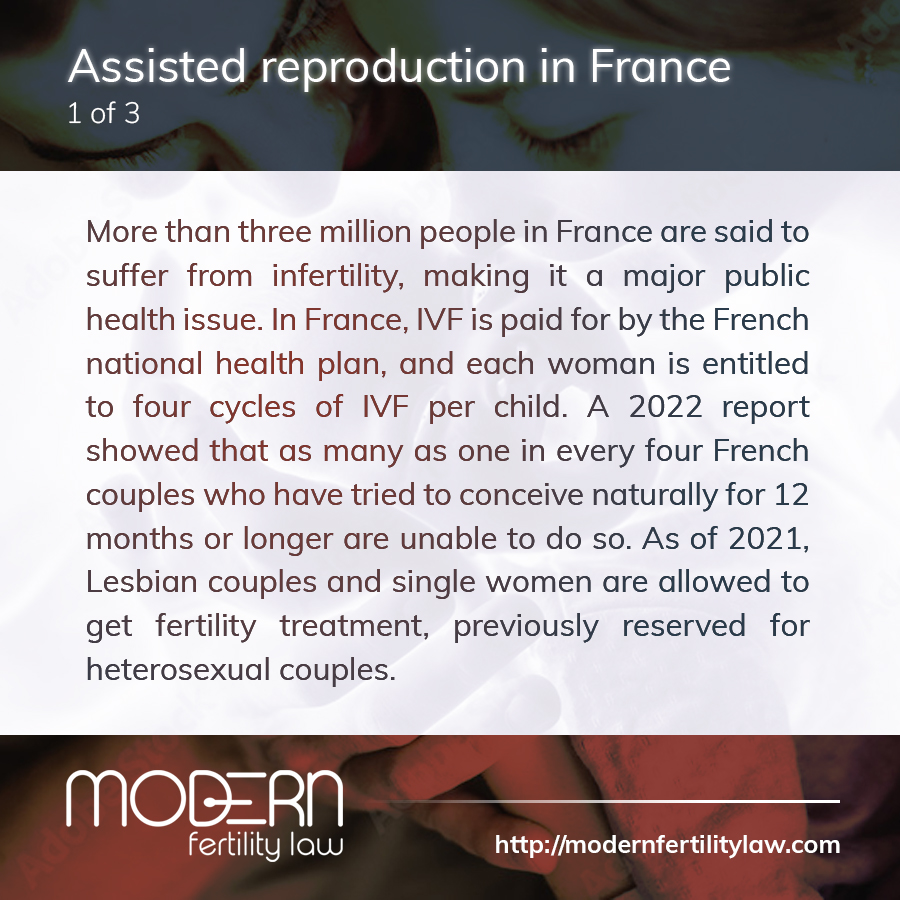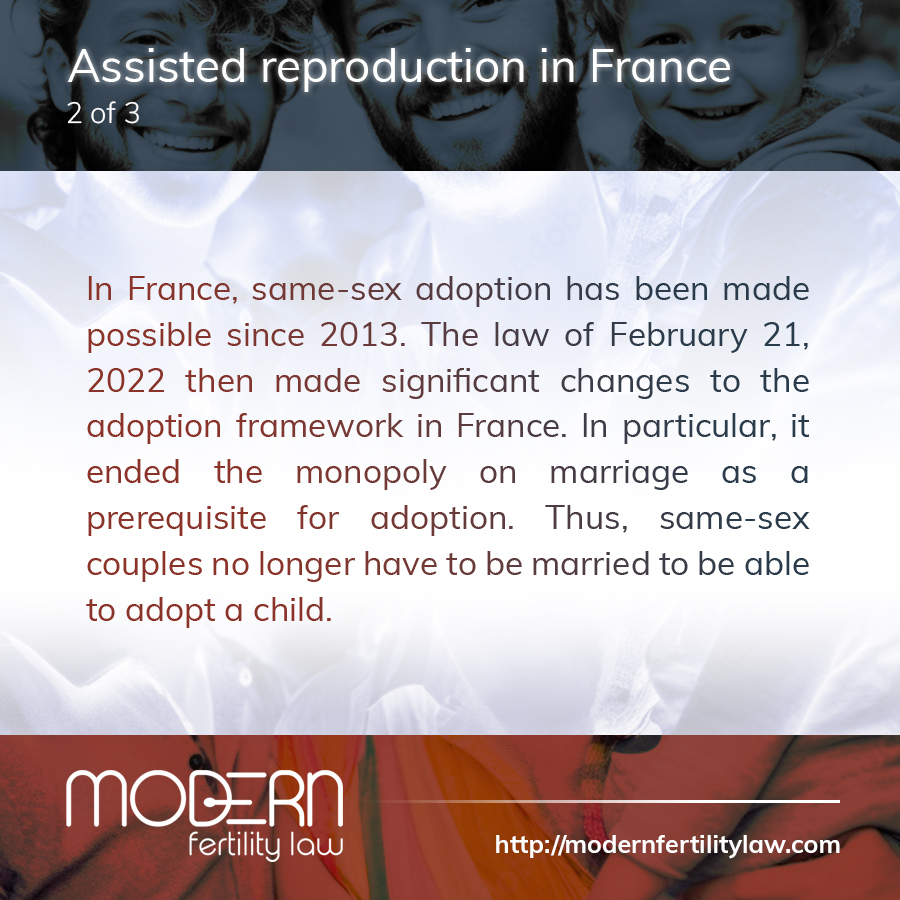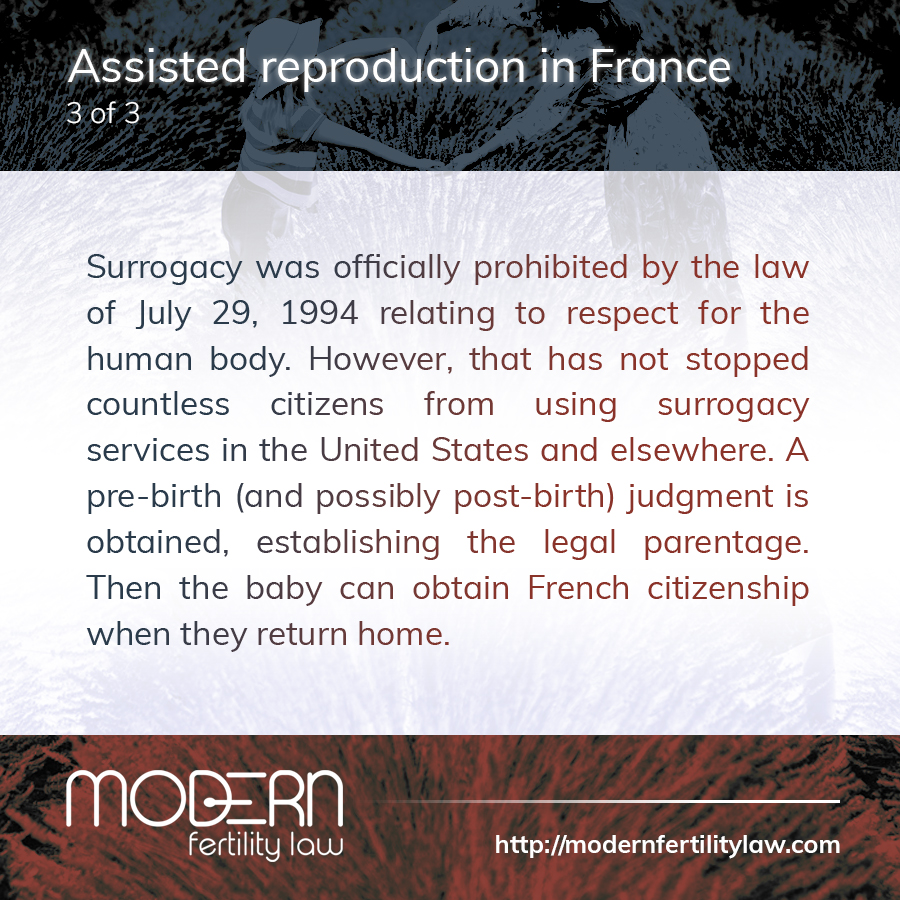


More than three million people in France are said to suffer from infertility, making it a major public health issue. In France, IVF is paid for by the French national health plan, and each woman is entitled to four cycles of IVF per child. A 2022 report showed that as many as one in every four French couples who have tried to conceive naturally for 12 months or longer are unable to do so. As of 2021, Lesbian couples and single women are allowed to get fertility treatment, previously reserved for heterosexual couples.
In France, same-sex adoption has been made possible since 2013. The law of February 21, 2022 then made significant changes to the adoption framework in France. In particular, it ended the monopoly on marriage as a prerequisite for adoption. Thus, same-sex couples no longer have to be married to be able to adopt a child.
Surrogacy was officially prohibited by the law of July 29, 1994 relating to respect for the human body. However, that has not stopped countless citizens from using surrogacy services in the United States and elsewhere. A pre-birth (and possibly post-birth) judgment is obtained, establishing the legal parentage. Then the baby can obtain French citizenship when they return home.
